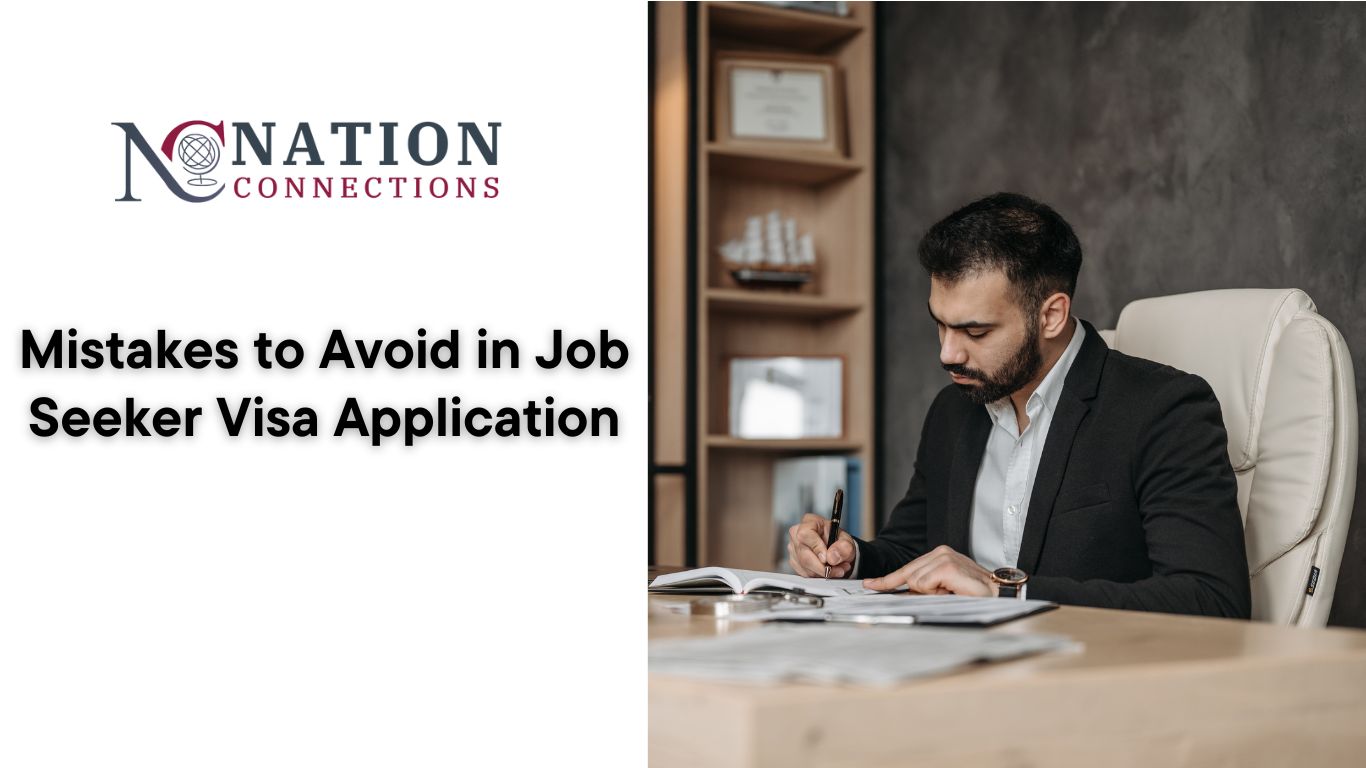
Applying for a job seeker visa is an exciting step toward pursuing international career opportunities. Whether you are targeting countries like Germany, UAE, or Canada, this visa allows you to explore the job market without an employment offer in hand. However, many applicants face rejection simply because they overlook critical details in their application.
Understanding the common mistakes to avoid in job seeker visa application can significantly increase your approval chances. From missing documents to improper financial proofs, even a small error can delay or ruin your plans. This blog will highlight the key pitfalls you must avoid and provide actionable tips to ensure a smooth application process.
Each country has its own rules for a job seeker visa. Many applicants assume the requirements are the same everywhere. For example, Germany asks for proof of funds, while the UAE may emphasize educational credentials. Failing to research leads to incomplete or incorrect applications, which are instantly rejected.
👉 Tip: Always check the latest guidelines on the official immigration website of your target country.
Visa officers want to see a clear, organized, and complete file. Missing even one essential document—such as your degree certificate, proof of funds, or health insurance—can lead to denial. Incorrect details (like mismatched dates or name discrepancies) also raise red flags.
👉 Tip: Create a checklist and cross-verify every document before submission.
One of the most common mistakes is underestimating the importance of financial proof. Countries want to ensure you can support yourself while searching for a job. Applicants often provide insufficient bank statements or fail to maintain the minimum balance for the required duration.
👉 Tip: Keep at least 3–6 months of bank statements showing a consistent balance above the required threshold.
Visa officers assess whether you are truly seeking a job or planning to misuse the visa for other purposes. A vague or weak career plan can harm your application. If you don’t highlight your skills, experience, and target industries, they may doubt your seriousness.
👉 Tip: Include a detailed cover letter explaining your career goals and how your skills match the job market of the chosen country.
Many countries demand health insurance coverage for the entire visa duration. Some applicants either skip this requirement or buy inadequate plans, which leads to rejection.
👉 Tip: Always purchase valid international health insurance from a trusted provider before applying.
Since the purpose of a job seeker visa is employment, your resume is an important part of your application. Submitting a generic or outdated CV decreases your chances of approval.
👉 Tip: Tailor your CV to international standards, highlighting relevant experience, skills, and qualifications.
If the job market in your target country demands language skills (e.g., German in Germany), not submitting proof like IELTS, TOEFL, or Goethe-Zertifikat can weaken your application.
👉 Tip: Attach valid language certificates to strengthen your profile.
Job seeker visa applications take time, and embassies often have long appointment waiting lists. Applying too late can disrupt your relocation plans.
👉 Tip: Start preparing at least 3–6 months before your intended travel date.
Many applicants fall into the trap of unreliable agents who promise guaranteed approvals. These consultants may provide incorrect information, leading to rejection.
👉 Tip: Always verify details with the official embassy website and avoid unlicensed intermediaries.
Applying for a job seeker visa can open doors to global career opportunities, but only if you avoid the common mistakes. From incomplete paperwork and weak financial proof to missing health insurance, each error can cost you time, money, and effort. By carefully preparing your documents, researching requirements, and presenting a strong application, you greatly increase your chances of success.
What is the most common mistake in job seeker visa applications?
Submitting incomplete or incorrect documentation is one of the leading causes of rejection.
Do I need health insurance for a job seeker visa?
Yes, most countries require valid health insurance covering the entire visa duration.
How much money should I show in my bank account for a job seeker visa?
It depends on the country. For example, Germany typically requires around €10,000 in a blocked account.
Can I apply for a job seeker visa without knowing the local language?
You can, but having language proficiency proof significantly boosts your chances.
Should I hire an agent for my job seeker visa application?
It’s better to apply directly through official embassy channels to avoid scams or misinformation.
How early should I apply for a job seeker visa?
Ideally, start preparing 3–6 months before your planned travel date.



